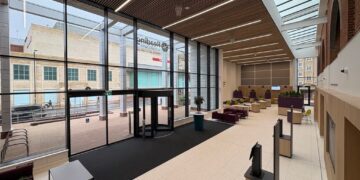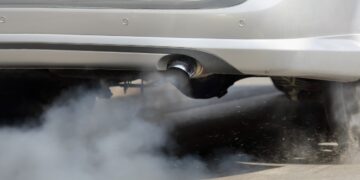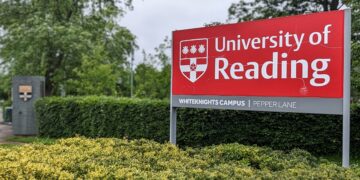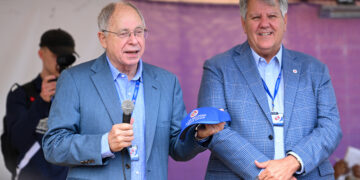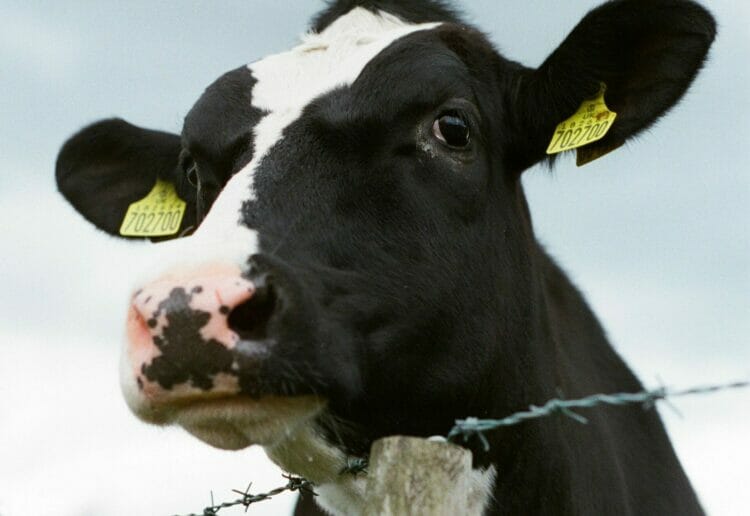A NEW research project is set to tackle cow heat stress to ensure sustainable milk production and improve animal welfare amid rising temperatures.
The Universities of Reading, Essex, Cardiff and Writtle University College are collaborating on a £1.24 million undertaking to investigate the impact of climate change on the productivity of cows within farm buildings.
At high temperatures, dairy cows are known to suffer heat stress, which can reduce milk yield, impair fertility and negatively affect their immune system and overall welfare.
Chris Reynolds, professor of animal and dairy sciences at the University of Reading, said: “Heat stress due to climate change could have severe negative consequences for the health and productivity of dairy cows.
“Lactating cows have a high rate of metabolism, which makes them less tolerant of high temperatures. Research is essential to inform and shape future cow management strategies and building designs.”
The project will bring together experts in animal and dairy sciences, mathematical modelling and statistics, and building design engineering, with research taking place at Reading’s Centre for Dairy Research (CEDAR) and six commercial dairy farms across the UK.
Individual cow behaviour will be continuously monitored using tracking sensors that record patterns of movement, activity, and space-use for each animal in the herd.
Detailed observations of barn ‘microclimates’ will also be obtained and combined with physiological data, such as cow body temperature, milk production and health.
Cows are known to adapt their behaviour to help cope with high temperatures and humidity: they may increase their intake of water, seek shade or areas of increased ventilation, or exhibit other individual and social behavioural responses, all of which can be observed.
Edward Codling, professor of mathematical biology at the University of Essex, said: “Our tracking sensors will allow us to analyse how indoor-housed dairy cows respond to, and cope with, heat stress in an unprecedented level of detail.
“By combining animal tracking data with continuous sensor monitoring of barn microclimates, we will be able to model and predict the complex interactions between cow behavioural choices and their housed environment.”
The data collected will inform development of housing designed to reduce heat stress and improve welfare.
Zhiwen Luo, professor in architectural and urban science at Cardiff University, said: “We have to respond to the changing environment and through better understanding of how cows interact with building microclimates, design housing and management systems that minimise heat stress and enable more sustainable dairy systems.”
The approach the team is taking, using bespoke animal tracking and environmental sensors from industry collaborators Omnisense and Smartbell to model how building design influences indoor microclimates and cow behaviour, has never been done in this way before.
The research consortium also has industry support from AHDB, the UK Agriculture and Horticulture Development Board, The Dairy Group, Etex, Innovation for Agriculture, and Map of Ag, as well as Defra, the government’s Department for the Environment, Food and Rural Affairs.
Dr Jonathan Amory, principal lecturer in animal behaviour and welfare at Writtle University College, said: “The climate crisis is bringing new challenges to animal welfare.
“By utilising new technology and working with industry, we can develop innovative solutions for improving livestock management.”


